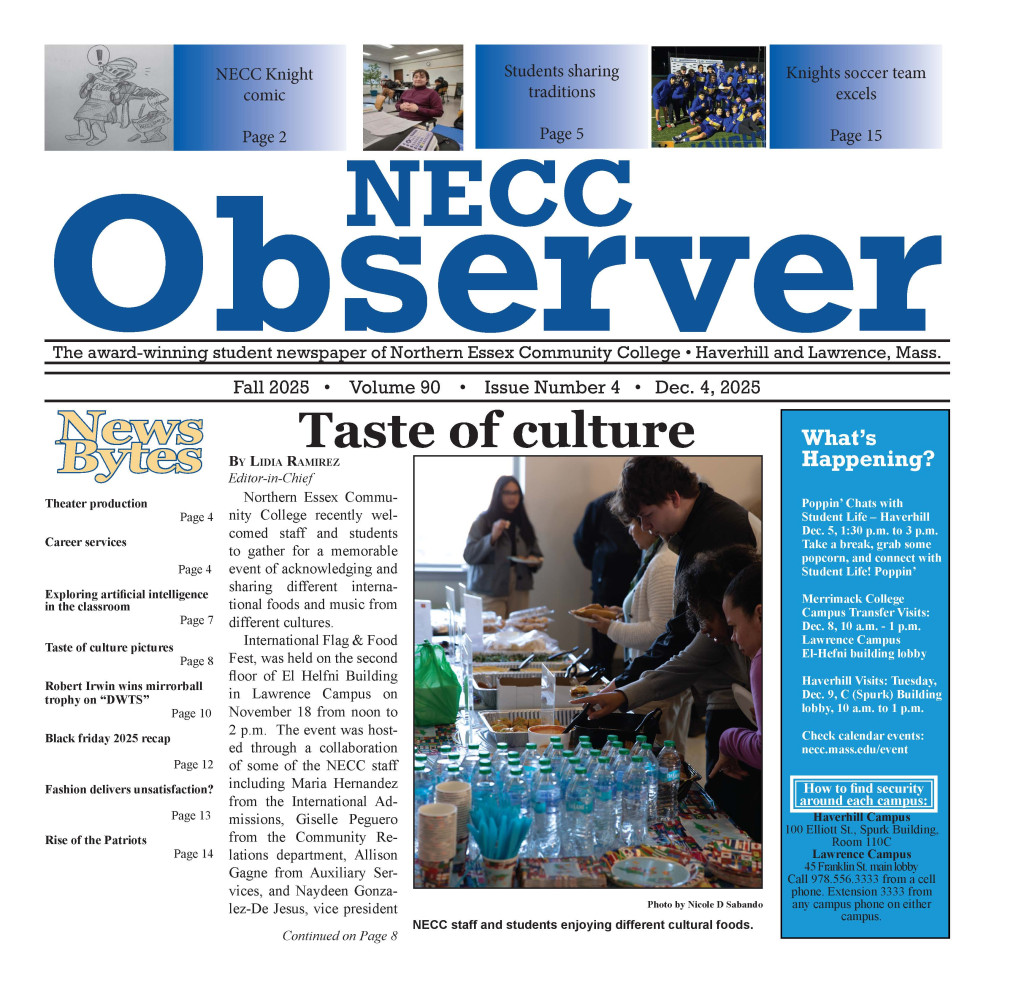As the Covid-19 pandemic began, many people were deemed heroes as the public watched emergency room doctors, nurses, and first responders work tirelessly throughout the pandemic beginning in 2020 to present.
There are endless accounts of the bravery and perseverance that these essential workers exhibited. The dedication to their careers and adherence to their sworn oaths proved honorable beyond belief as they navigated through a time which many would consider agonizing and even traumatic.
However, there are several lesser-known occupations that were deemed essential also. People in these industries too, took substantial risks working through a global health crisis. Three local essential workers shed light on their occupations and why they uniquely qualify as working essential jobs.
David Sweet, a Senior BioProcess Specialist employee at Bristol Myers Squibb in Devens, MA described why his job was considered essential.
“I work in BioPharma in the large-scale commercial production of therapeutic proteins for various human diseases. My job position is considered essential because patients depend on the medicines for survival and quality of life. Global inventory supply would be greatly affected if we weren’t operating the process to manufacture them.”
Production of life-saving medications is crucial, especially during a health crisis. Sweet continues on to describe his experience working in-person when exposure risks were high.
“New company policies were set in place at the onset of the pandemic with regard to personal spacing and the use of face masks.”
According to Sweet, employees still take part in these practices today. In addition to these precautions, Sweet described additional safeguards his company has implemented to keep its employees safe.
“Weekly communication from our site leaders and company senior management provide us with updated company policies.” Similar to those working in a medical setting, Sweet described being accustomed to using PPE. “Because the nature of my job involves working in a clean room setting, I am required to, and used to wearing full PPE, including face masks for the duration of my shift.”
Sweet’s work in pharmaceuticals plays a vital role in maintaining public health; especially in the midst of a health emergency that spans world-wide.
Tyler Slepoy, a Marblehead, MA municipal employee, working in arboriculture and urban forestry on the North Shore, compared the safety risks of working through the pandemic to the risks that already come along with his line of work. “My occupation remains one of, if not the most, dangerous job in the country, with the highest fatality rates. While I would have felt safer health-wise remaining home, I understood why that was not always possible.”
Slepoy shares why his job was deemed essential work. “My work ranges from standard tree care; which is pruning, tree removal, and stump grinding to emergency storm work; which is clean up of fallen or damaged trees and limbs due to inclement weather or accidents. It would not be possible to work remotely in my industry. We need to be physically present. Especially when microbursts, nor’easters, and heavy winds occur. Oftentimes trees fall on cars, houses, and into public roadways and must be cleared immediately.”
In an area prone to severe weather such as New England, Slepoy’s occupation is certainly a necessity.
Another essential worker conveyed the importance of her job, especially during Covid-19 surges. Alyce Slepoy, an Occupational Therapy Assistant working in Lynn, recalls somber moments where she felt called to provide emotional support to her patients. “I knew that it was very important to my patients for me to be there for them and at times holding hands because their loved ones weren’t allowed to come in and be with them.”
Slepoy was asked whether or not she agreed that her job should’ve been considered essential; she responded “I do agree. The elderly population still needed to be cared for on a daily basis and with staffing so short in that type of facility and because of the setting – we lost a lot of lives! It is by far the saddest time I’ve lived through.”
Exposure and transmission rates can be high in a medical setting. When asked if she felt safe continuing to work during the pandemic, Slepoy stated “I would be lying if I told you I felt safe during the pandemic. It was a very very very scary time. I was probably up every night worrying about bringing the virus home to my family and my loved ones. I was saddened by the fact that I couldn’t see my grandchildren or children for months. I do believe my family was afraid of what I would bring home to
them as well and I couldn’t blame them.”
Despite these drawbacks, Slepoy remained loyal to her patients and career throughout these trying times. “I did not prefer to be
home. I knew I needed to be where my job was.”

